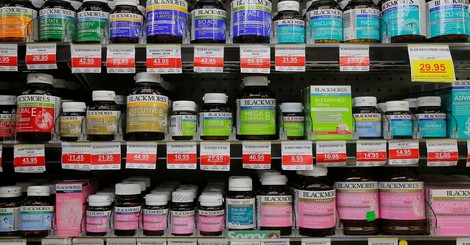Your podcast discovery platform
Curious minds select the most fascinating podcasts from around the world. Discover hand-piqd audio recommendations on your favorite topics.

piqer for: Global finds Health and Sanity Doing Good
Bangalore-based Rashmi Vasudeva's journalism has appeared in many Indian and international publications over the past decade. A features writer with over nine years of experience heading a health and fitness supplement in a mainstream Indian newspaper, her niche areas include health, wellness, fitness, food, nutrition and Indian classical Arts.
Her articles have appeared in various publications including Mint-Wall Street Journal, The Hindu, Deccan Herald (mainstream South Indian newspaper), Smart Life (Health magazine from the Malayala Manorama Group of publications), YourStory (India's media technology platform for entrepreneurs), Avantika (a noir arts and theatre magazine), ZDF (a German public broadcasting company) and others.
In 2006, she was awarded the British Print-Chevening scholarship to pursue a short-term course in new-age journalism at the University of Westminster, U.K. With a double Masters in Globalisation and Media Studies from Aarhus Universitet (Denmark), University of Amsterdam and Swansea University in Wales, U.K., she has also dabbled in academics, travel writing and socio-cultural studies. Mother to a frisky toddler, she hums 'wheels on the bus' while working and keeps a beady eye on the aforementioned toddler's antics.
Mirror, Mirror On The wall, Which Is The Most Dangerous Fake News Of Them All?
Incredible cures and magical solutions to maladies are nothing new. The trouble in our times is magic stands naked while the make-believe hides under a cloak of scientific credibility.
Fake health news, like all fake news, dips into the same bag of tricks. First up, there will be something comforting like the recent "sun protects us from cancer" (no) or more comforting, like the many tales of obscure fruit extracts curing chronic acidity (no, obviously) or the absolutely comforting, like more wine leads to a healthier heart (sorry, that's not true either). Next, there will be a reference to a "study" with some scientific jargon thrown in for good measure. The tone, like any other fake news, will be that of a fair-weather friend telling you what you would like to be true; the words will play on your bias and reinforce your previously-held beliefs.
Health science, as this author rightly says, is a great breeding ground for such misinformation. She goes on to list why she thinks fake health news is the most dangerous of all kinds of fake news.
Her main point is that journalism and science are two different beasts - scientific process does not happen in tandem with click-bait stories; new developments happen slowly, questions may never be answered, findings may get refuted, and long-cherished wisdom might be proven to be false. What fake health news does is not give science the liberty to be unsettled; and worse, provide fodder to climate change deniers and vaccination skeptics. Fake news about health is “pervasive and harder to weed out”. Perhaps because health is a deeply personal matter for all of us and is closely linked to our self-esteem and identity.
Considering that journalism itself is going through a trust-deficit low phase, if misinformation is rampantly used for empty hype and more clicks, like it is being used now, when genuine health stories that may sound incredible are put out (an eminently possible scenario), the readers may well cry wolf.
Stay up to date – with a newsletter from your channel on Health and Sanity.
